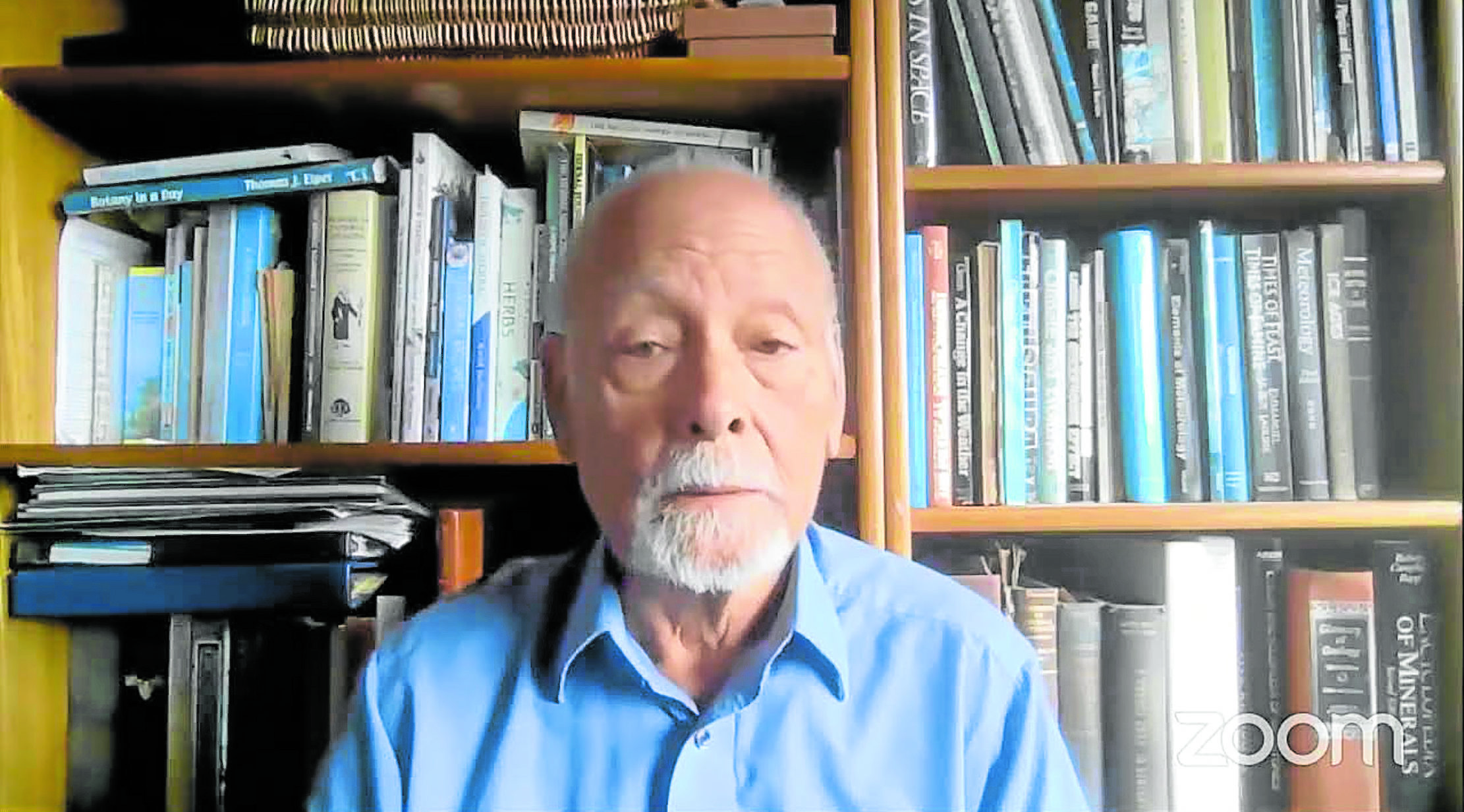Reclamation projects, nuclear plant revival ‘top threats to PH environment’
Big-ticket reclamation projects at Manila Bay and other parts of the country and the revival of the mothballed Bataan Nuclear Power Plant (BNPP) are the “two biggest human-made threats to the environment” today, according to a geologist who was recognized last week for his role as a nature hero.
Kelvin Rodolfo, who received the Gawad Bayani ng Kalikasan on Wednesday, has written extensively about the environmental impact of the reclamation of Manila Bay and geologic hazards in the plan to revive the nuclear plant in Bataan province, which was built during the time of President Marcos’ father and mothballed since.Rodolfo’s research has shown that certain areas are experiencing land subsidence due to excessive extraction of groundwater, such as the cities of Caloocan, Malabon and Navotas.
These cities may become more vulnerable to storm surges if reclamation projects continue, he said.
Because of his findings, Rodolfo has supported fisherfolk communities in calling attention to the harm caused by some 187 reclamation projects across the country, including huge developments at Manila Bay.
‘High risk’
Rodolfo has also taken a strong position against the Bataan Nuclear Power Plant (BNPP), which started construction in Morong town in 1976.
Article continues after this advertisementWhat would have been the country’s first nuclear power plant was never fueled, as it was saddled with corruption issues, including a fraudulent deal with US firm Westinghouse.
Article continues after this advertisementIn a 2009 article, Rodolfo wrote that there were “very strong reasons why nuclear power is wrong for the Philippines,” noting that the BNPP “has an unacceptably high risk of serious damage from earthquakes, volcanism, or both.”
Because the Philippines has no uranium ore reserves to harness nuclear power, reviving nuclear power here, in addition to putting many Filipinos in harm’s way, means that “we would expend a huge amount of money to put ourselves at the mercies of countries that have uranium,” he said.
Under the present Marcos administration, a House special committee on nuclear energy has started discussions on a bill that calls for the development of nuclear power and the possible revival of the BNPP, amid rising global coal prices.
The move has been opposed by many environmental advocates, including Rodolfo.
‘Only an old scientist’
In accepting the award presented online, Rodolfo said he was “no hero, but only an old scientist who is studying geology, the ocean and environmental hazards.”
“As long as I’m living, I will join you all in opposing these two major threats to our environment,” he said.
Among the other awardees of the Gawad Bayani ng Kalikasan were young forest conservationist Daniel Jason Maches and longtime environmental activist Vertudez “Daisy” Macapanpan.
Maches was recognized for his “active opposition to the suspension of a road project that would have opened up the Barlig forests [in the Mountain Province] to reckless exploitation.”
Macapanpan, 69, currently leads the campaign to protect the rich mountains of Southern Tagalog from environmentally destructive projects.
In the 1980s, she taught at the University of the Philippines Baguio, where she joined the campaign to oppose the construction of the Chico River Dam Projects.“We call on government officials to ensure that the laws protecting our human rights and environmental defenders have teeth,” she said during her acceptance speech.“The challenge of our time is for us to collectively knock on their hearts and minds, so that our leaders would become propeople and proenvironment,” Macapanpan added.
‘Deadliest country’
The late Chad Booc, who was killed by military forces last year, was named as the most distinguished awardee for his work as a mathematics teacher and environmental advocate in “lumad” (indigenous peoples) communities.
Booc was killed in New Bataan town in Davao de Oro in February 2021 after checking out a new site for lumad schools together with other volunteers.
Since 2009, the Gawad Bayani ng Kalikasan has been given by the Center for Environmental Concerns Philippines “to highlight and reinforce the efforts” of Filipino environmental defenders.
The biennial awards event and lecture series honors “Filipino heroes and heroines” who have “defended, and continue to defend, the environment and people’s rights.”
According to the Institute for Economics and Peace, the Philippines is the country most at risk from the climate crisis.
International rights group Global Witness has also labeled the Philippines as “the deadliest country in Asia for land and environmental defenders,” with 270 of them killed in the last decade.
Of this number, more than 40 percent, or 114, were indigenous peoples campaigning to protect their land and the environment with nearly 80 percent of attacks against indigenous defenders taking place on the island of Mindanao, Global Witness noted. INQ
RELATED STORIES
Geologist warns vs activating BNPP
‘Antiquated’ Bataan nuke plant won’t solve power crisis – scientists
